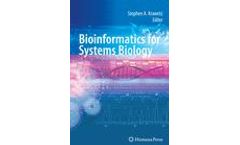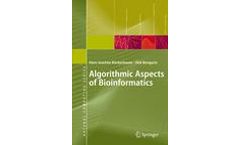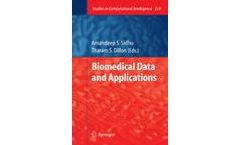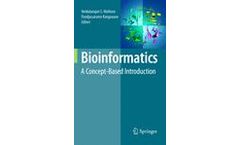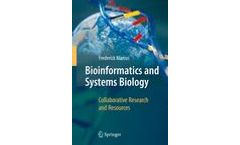bioinformatics-system books
8 books found
This book constitutes the refereed proceedings of the Third International Conference on Intelligent Data Engineering and Automated Learning, IDEAL 2002, held in Manchester, UK in August 2002.The 89 revised papers presented were carefully reviewed and selected from more than 150 submissions. The book offers topical sections on data mining, knowledge engineering, text and document processing, ...
Computational Intelligence (CI) has emerged as a novel and highly diversified paradigm supporting the design, analysis and deployment of intelligent systems. This book presents a careful selection of the field that very well reflects the breadth of the discipline. It covers a range of highly relevant and practical design principles governing the development of intelligent ...
The biological sciences are now in the midst of a true life sciences revolution akin to what physics experienced just after the turn of the last century. We are now in a phase of unparalleled growth that is reflected by the amount of data generated from each experiment. At the time of this writing, the rate of data acquisition was approaching 2 terabytes over the course of 5 days with first pass ...
Advances in bioinformatics and systems biology require improved computational methods for analyzing data, while progress in molecular biology is in turn influencing the development of computer science methods. This book introduces some key problems in bioinformatics, discusses the models used to formally describe these problems, and analyzes the ...
Compared with data from general application domains, modern biological data has many unique characteristics. Biological data are often characterized as having large volumes, complex structures, high dimensionality, evolving biological concepts, and insufficient data modelling practices. Over the past several years, bioinformatics has become an all-encompassing term for everything relating to both ...
Bioinformatics is an evolving field that is gaining popularity due to genomics, proteomics and other high-throughput biological methods. The function of bioinformatic scientists includes biological data storage, retrieval and in silico analysis of the results from large-scale experiments. This requires a grasp of knowledge mining algorithms, a thorough understanding of biological knowledge base, ...
Collaborative research in bioinformatics and systems biology is a key element of modern biology and health research. ...
This is the first volume in a series that will be dedicated to publishing advances in immunomics particularly those focusing on systemic and integrative approaches in basic and clinical immunology, immunoinformatics, and immunologically relevant instrumentation and high-throughput screening methods. Immunoinformatics utilizes mathematics, information science, computer engineering, genomics, ...



